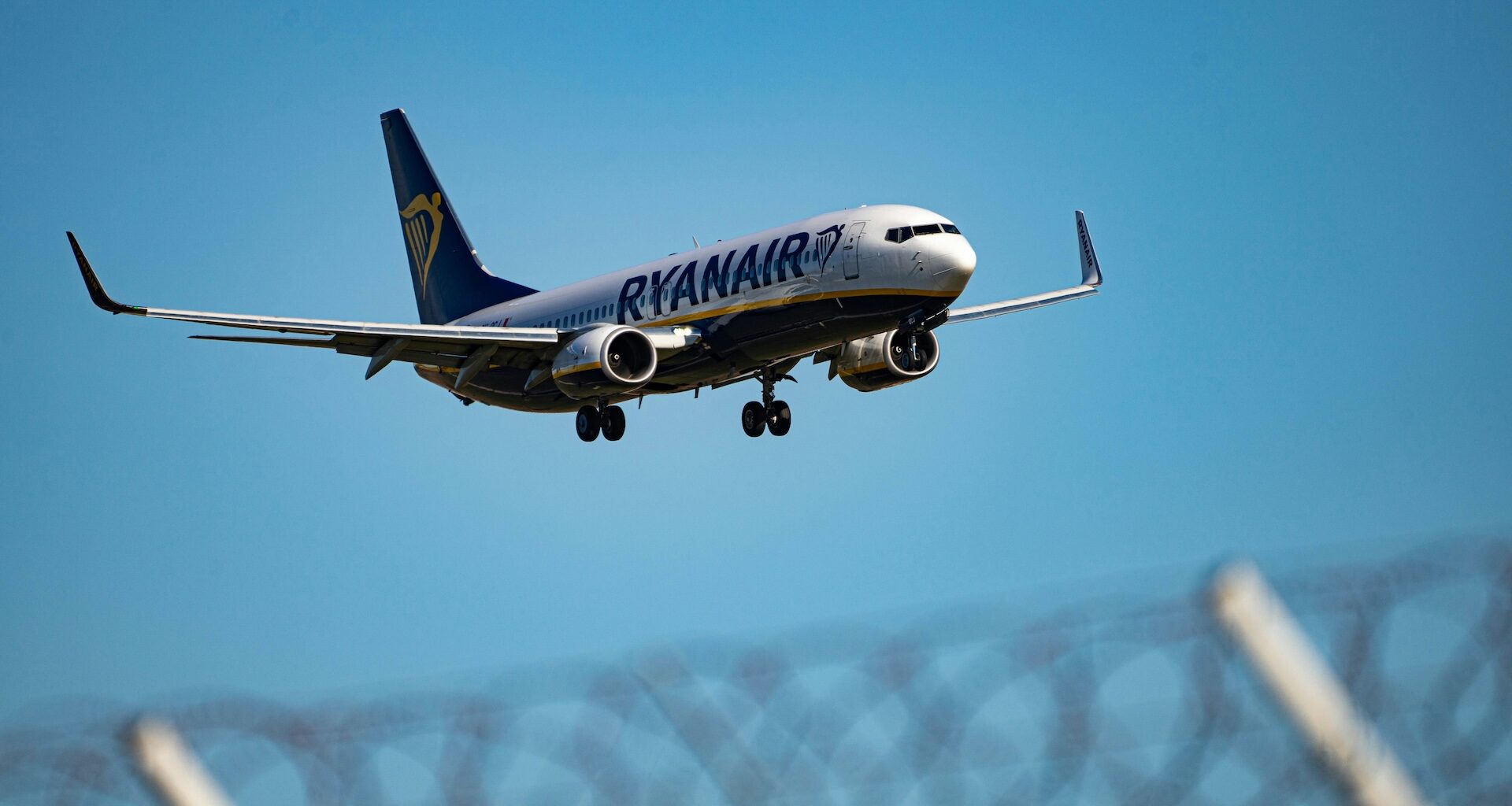Ryanair announced last Thursday it will stop flying from three regional airports in France due to what it calls a ‘harmful tax’ hike on airplane tickets, urging the French government to reverse its policy.
The low-cost airline plans to withdraw from Bergerac, Brive, and Strasbourg, cutting routes to Ireland, Portugal, and Scotland, unless the tax is scrapped. It is the fourth airport dropped by the company since the spring, when it also cut service to Vatry.
This follows similar moves in Belgium and Denmark, where Ryanair reduced services in response to rising aviation taxes. France is now the latest target in a campaign that pits European governments against one another over what Ryanair sees as excessive levies.
The trigger was the 182% increase in the French Solidarity Tax, which is set to rise from €2.63 to €7.44 per passenger on domestic and intra-European flights in March 2025. While the French government claims that the tax supports sustainable transport and climate goals, Ryanair maintains that it penalises low-cost carriers and undermines regional connectivity.
“This astronomical tax makes France less competitive compared to other EU countries such as Ireland, Spain, and Poland, which do not impose any air taxes,” the airline said in a statement.
The French government’s increase of the solidarity tax on air tickets (#TSBA) goes in the wrong direction.
It will reduce connectivity, harm consumer welfare, and divert funds from #decarbonisation 📉
Unilateral measures like this are not the right solution. pic.twitter.com/Ap9FiGlAaS
— Airlines for Europe (A4E) (@A4Europe) February 10, 2025
Ryanair estimates that the tax will cost the company €108 million annually, resulting in the cancellation of 25 routes, the loss of 750,000 passengers and a 13% reduction in winter capacity in France. The company has warned that this decision will have a negative impact on tourism, jobs and economic growth, particularly in underserved regions.
“At a time when France should be focusing on recovery and growth, Ryanair has no choice but to reduce its capacity for winter 2025 by 13 percent due to the French government’s failure to act against this harmful air tax,” said Jason McGuinness, Ryanair’s chief commercial officer.
While France is now presented as a cautionary example, Ryanair’s actions elsewhere in Europe show a more complex picture. Spain, for instance, is now listed by the airline as a ‘tax-free’ EU country – yet its regional airports tell a different story. In February, Ryanair cut 12 routes and 800,000 seats from smaller Spanish airports, citing excessive charges from operator Aena – prompting accusations of ‘blackmail’. Meanwhile, it increased capacity at major hubs such as Madrid, Málaga, and Alicante, suggesting that cost, not just tax policy, drives its decisions.
This tactic is not new. Back in February, when Ryanair threatened to pull out of two Danish airports, the company said it would redirect growth to “competing EU countries like Sweden, Italy and Hungary, who are abolishing their aviation taxes to promote connectivity, traffic, jobs and economic growth”.
Two weeks later, the same countries were praised by a Ryanair spokesperson in criticism of Belgium’s planned tax hike. The spokesperson stated that, rather than “abolishing aviation taxes and cutting airport charges to maintain competitiveness and stimulate traffic growth”, the new Belgian government was “proposing to increase its aviation tax on ordinary passengers by up to 150%”.
In France, the Transport Ministry responded by freezing the current tax rate until the end of 2026, but Ryanair says this is not enough. “The French government has failed to cancel an excessive increase in air tax,” the company said.
Unless the levy is reversed, Ryanair warns that it will redirect investment to more favourable markets. The airline has promised to invest $2.5 billion in France, base 25 new aircraft there, and create 750 new jobs if the tax is scrapped.
As Europe attempts to balance climate targets with aviation growth, Ryanair’s stated policy is to reward countries with low or no aviation taxes by increasing routes and investment and to reduce operations in those that impose higher levies.
